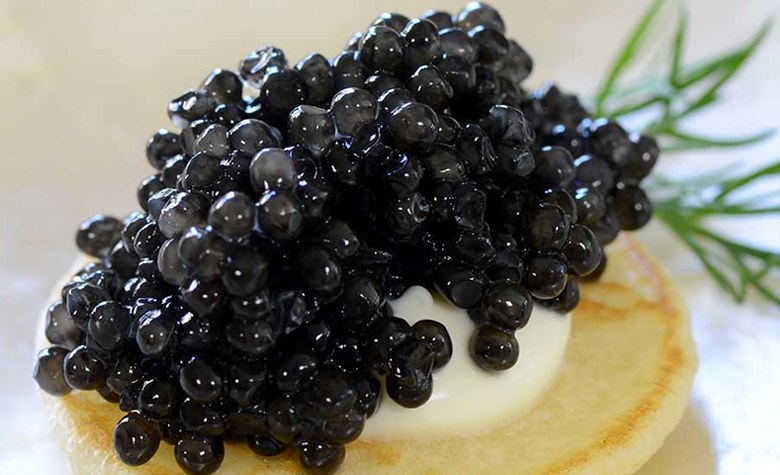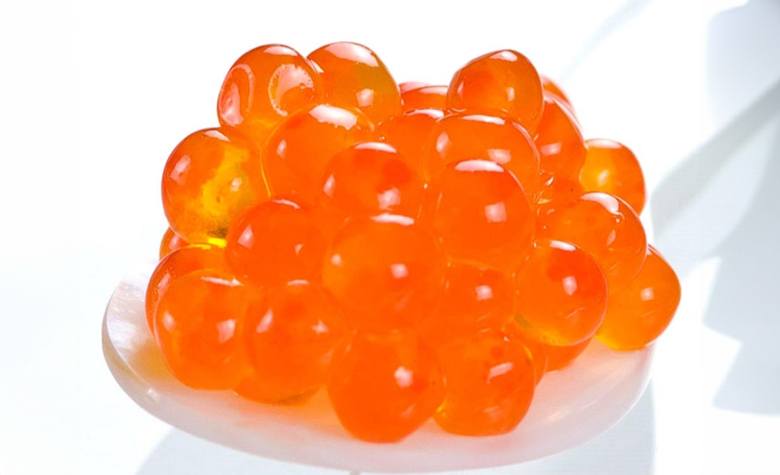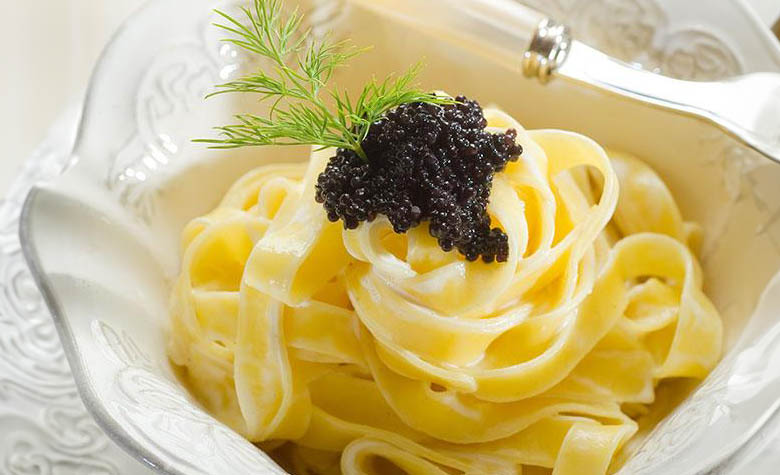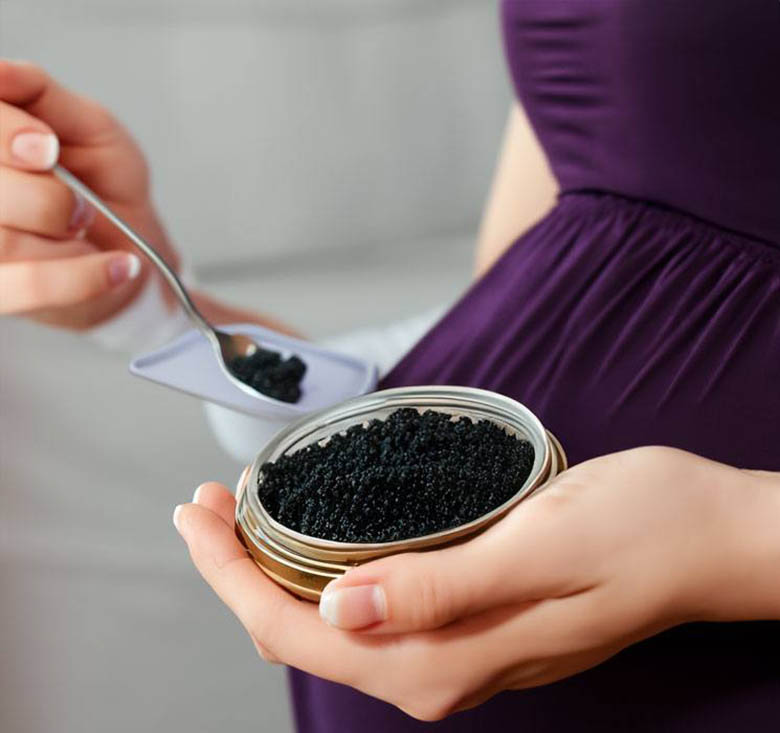Connoisseurs love it, but many foodies blanch at the idea of eating caviar. While it’s normal to balk at the idea, these fish eggs taste, well, nothing like you would expect! So, what does caviar taste like? The answer is simple—delicious!—but it's also complicated.
This delicacy comes from a fish, yet it is not (and shouldn’t be) overly fishy. It will always have a mild fishiness and slight saltiness, but the taste of caviar is more like ocean water rather than an in-your-face fish flavor. This, of course, depends on the quality of the product. The best kind has mild and fresh first impressions, with no pronounced intensity, and rather a buttery richness that is wholly unexpected. If it’s very fishy and very salty, then it’s not great quality.
It also has a wonderful texture. The beads roll on your tongue and slide through the roof of your mouth, each bead distinct with little to no mushiness. It is smooth but not overwhelmingly oily, and it has a satisfying pop once you bite into the eggs, releasing a burst of flavor.
The best caviars, like Osetra and Sevruga, are often described as buttery with nutty flavors. However, the flavor profile can vary greatly from tin to tin. Factors influencing flavor include the species of the sturgeon, where it comes from, the quality of the water where it swims, its diet, and even its age—often older, more mature sturgeon produce the best.

Taste of Each Type of Caviar
- Beluga Caviar Taste: Known for its large, soft eggs and delicate texture, Beluga has a rich, buttery flavor with a clean, slightly nutty finish. This type is often considered the most luxurious and is prized for its smooth, creamy taste.
- Osetra Caviar Taste: Osetra offers a more complex flavor profile with medium-sized eggs and a firm texture. The taste starts with a briny, slightly salty burst, followed by a nutty, sometimes fruity, and creamy finish. It is often described as having a rich and robust flavor that lingers on the palate.
- Sevruga Caviar Taste: Sevruga has smaller eggs and a firmer texture compared to Beluga and Osetra. It is known for its strong, pronounced flavor, with a briny, salty taste that transitions into a more intense, earthy finish. Sevruga is often the go-to choice for those who prefer a bold experience.
- Kaluga Caviar Taste: Often compared to Beluga, Kaluga offers a similarly rich and buttery flavor but tends to be slightly less delicate. It has a large egg size and a smooth, creamy texture with a hint of nutty sweetness.
- Sterlet Caviar Taste: Sterlet stands for its mild yet complex flavor, offering a memorable tasting experience that is both luxurious and accessible. The flavor is less intense compared to some other varieties, such as Sevruga, which tends to have a more robust and salty profile.
How Does the Taste of Caviar Differ by Color?

Caviar's taste can indeed vary by color, though color isn't the only factor influencing its flavor. Here’s a straightforward guide to understanding these differences:
- Black: The flavor of black caviar can vary significantly depending on the type of fish it comes from, its diet, and the specific conditions under which it was harvested and processed. While all black caviars share some common characteristics, each type offers a unique flavor experience.
- Golden: This tends to have a milder, more delicate flavor compared to its darker counterparts. It still carries that initial briny taste but often has a more pronounced nutty or creamy undertone.
- Red and Orange: Varieties like Salmon (Ikura) and Trout are usually red or orange. These have a more robust, pronounced fish flavor compared to black varieties. They are still salty and briny but can also have a slight sweetness.
- Yellow and White: Less common are these types, such as Whitefish caviar. These tend to have a subtler flavor, less intense than black or red caviar. They are mildly salty and can have a light, slightly sweet taste.
Caviar Nutrition

Caviar is a rich, calorie-dense food that’s a good source of protein, vitamins A, B12, B6, C, and D. It’s also rich in magnesium, iron, selenium, and calcium, with a good amount of amino acids like lysine, plus loads of anti-inflammatory Omega-3s, which makes the health benefits of eating it numerous. However, it’s also very high in cholesterol and sodium, so you should limit portions.
Caviar and Pregnancy

Eating caviar while pregnant is a controversial topic. Fish eggs in general have a risk of containing listeria, a bacterium that’s dangerous to the unborn baby. Because malossol (lightly salted) caviars are not pasteurized, the risk of listeria exists, and pregnant women should avoid consuming raw fish eggs unless they are pasteurized. The risks are very low, but if you’re pregnant and feel like indulging, make sure to talk to your doctor.